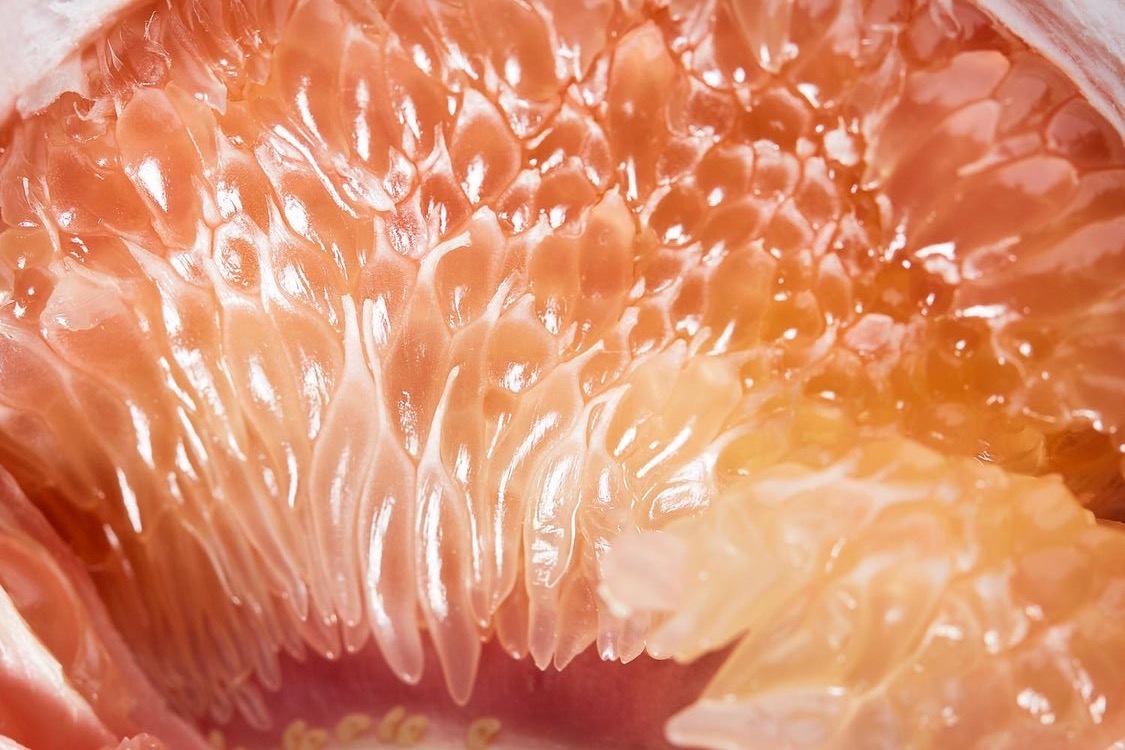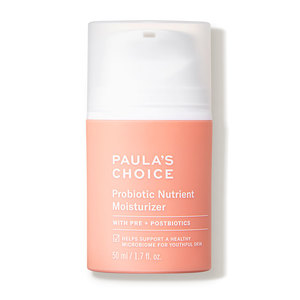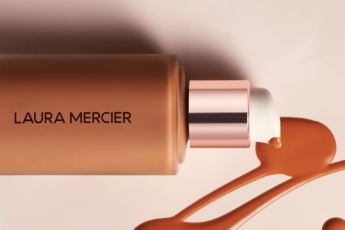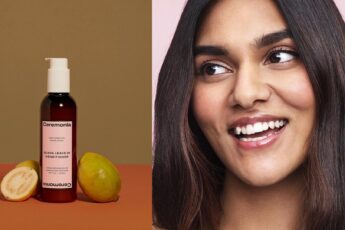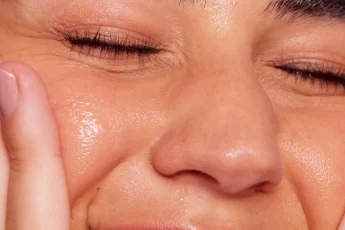Probiotic skincare it’s all about feeding your skin with good bacteria.
In these crazy times, the role of our overall health is well established; and probiotics have a huge take on it, one of the benefits we’ve noticed since we look deeper into what goes inside as well as outside our face and body by changing up our diets and include more probiotics is definitely an improvement in our skin.
You’ll also like this:
Here are The Non Essentials Ingredients you Should be Avoiding in your Skincare Now
The Beginners Dictionary: 10 Skincare Ingredients You Need To Get Familiar With NOW
Sensitive Skin? Add these 3 Gold Natural Ingredients to your Skincare Routine
Therefore, a probiotic skincare routine will actually improve and balance your complexion by improving your skin’s natural barrier, or what we like to call the microbiome, seeing this as the first layer of defense in our skin. Leaving a fresher, glow, and plumped skin as result.
We’ve talked so many times about the inevitable gut-skin connection. Think orally ingested nutrients as antioxidants applied topically to nourish the skin. Now, let’s do it in reverse if we take probiotics in our diet, could they be applied to our skincare routine? Years of research led to one answer: Yes! To prove it we talked with Marian Jayalath from the Swisse Science Communications team on all things probiotics.
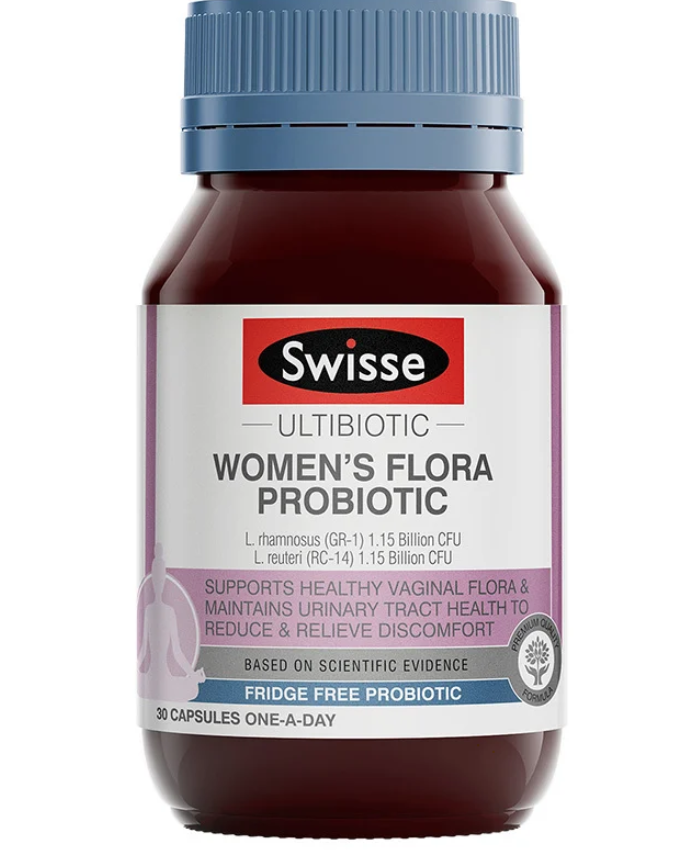
According to Marian, the beneficial effects of probiotics can be delivered both topically or by ingestion as probiotics have the capacity to optimize, maintain, and restore the microbiota of the skin in different ways. There is emerging research to suggest the positive effects of probiotics on the skin by modulating the immune system and the potential to provide therapeutic benefits for some skin conditions.
As we have mentioned before, probiotics are concentrates of live organisms that contribute to a healthy microbial environment.
It’s important to be aware that there are many strains of probiotics, all of which have differing actions from digestive health, immunity, and women’s health. The research in the skin is promising, where a number of studies have eluded to the mechanism where individual microorganisms can affect skin homeostasis. It is advised that you consult your Primary Healthcare Practitioner when considering your supplementary routine, as they can provide further information on suitability and advise on what’s right for your individual needs.
What to look for when choosing probiotics?
The most common species of probiotics belong in the families of Lactobacillus, Bifidobacterium, and Streptococcus. There is some evidence that probiotic skincare can have a direct effect at the site of applications, by inducing a natural defense mechanism. Improvements in technology with encapsulation and packaging has assisted with enhancing the stability and viability of certain strains in order to create shelf-stable probiotic products. Consumers can be confident that when they purchase shelf-stable probiotics the viability of the strain is maintained to the end of its shelf-life.
We know that probiotics can be found (live bacteria) in fermented foods such as yogurt, sauerkraut, kefir, miso, and tempeh. But what about skincare products? We’ve rounded up whole probiotic skincare for you so you can get that natural glow by feeding your skin of all good bacteria.
How to Create a Probiotic Skincare Routine?
Here’s a list of the 7 products the CF team is loving for their probiotics effects.

1. Cleanser – Elizabeth Arden, Superstart Probiotic Cleanser Whip to Clay
This whipped mousse cleanser is the first step into your probiotic skincare routine, as it transforms into a mineral-rich clay to purify, prep, and infuse skin to support the skin’s natural defenses. When in contact with water, it transforms into a foamy formula so good to lather and rinse, taking away makeup and impurities from your day even WFH. After the first use, your skin will look primed and ready to achieve the final glow.
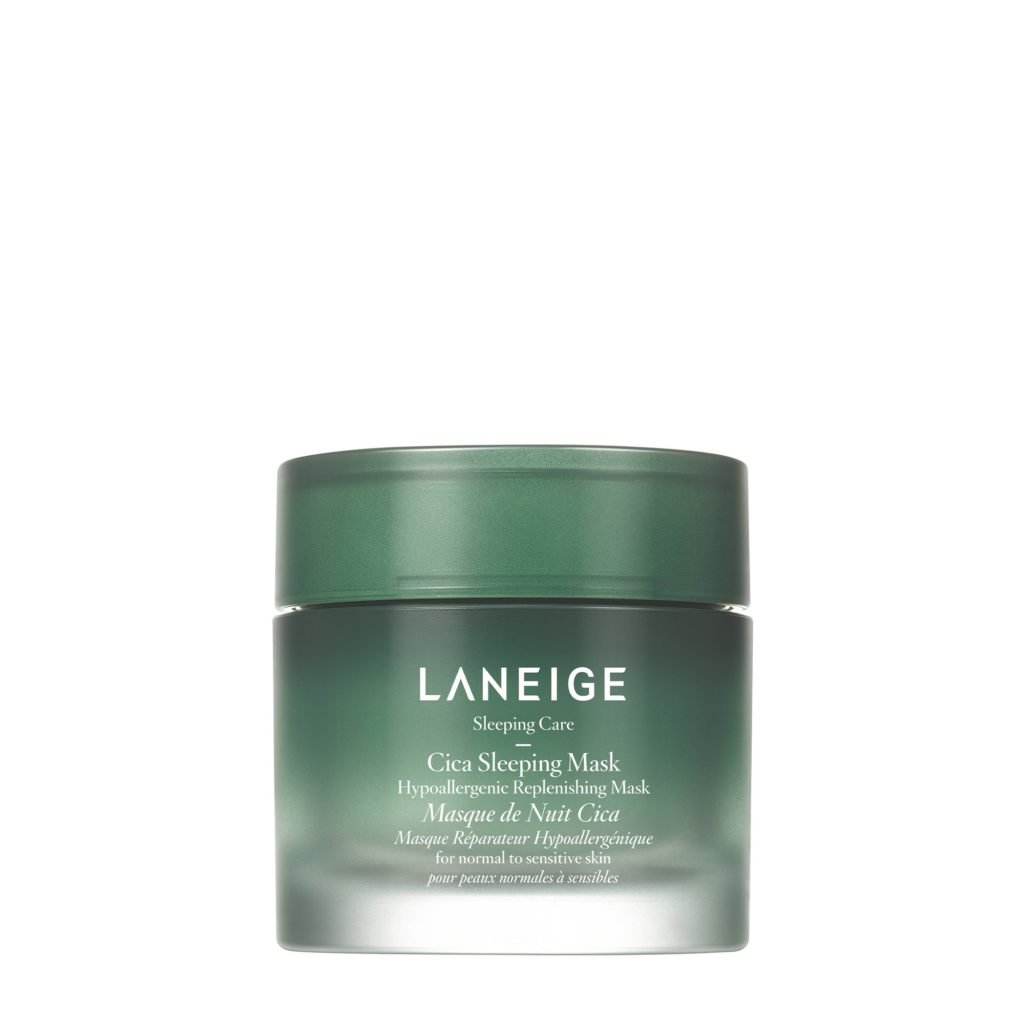
2. Mask – Laneige, Cica Sleeping Mask
The next step into your probiotic skincare routine has to be this barrier strengthening mask with the autogenous healing efficacy of Forest Yeast or most commonly know as cica to regain the skin’s strength at night. It cares for dry and damaged skin by providing intensive nourishment during the night, the day after you’ll noticeably see a fresh and glowy you reflected on the mirror. Apply 2-3 layers for a deep restorative effect and the most important part of all, don’t wash your face as you go to sleep.
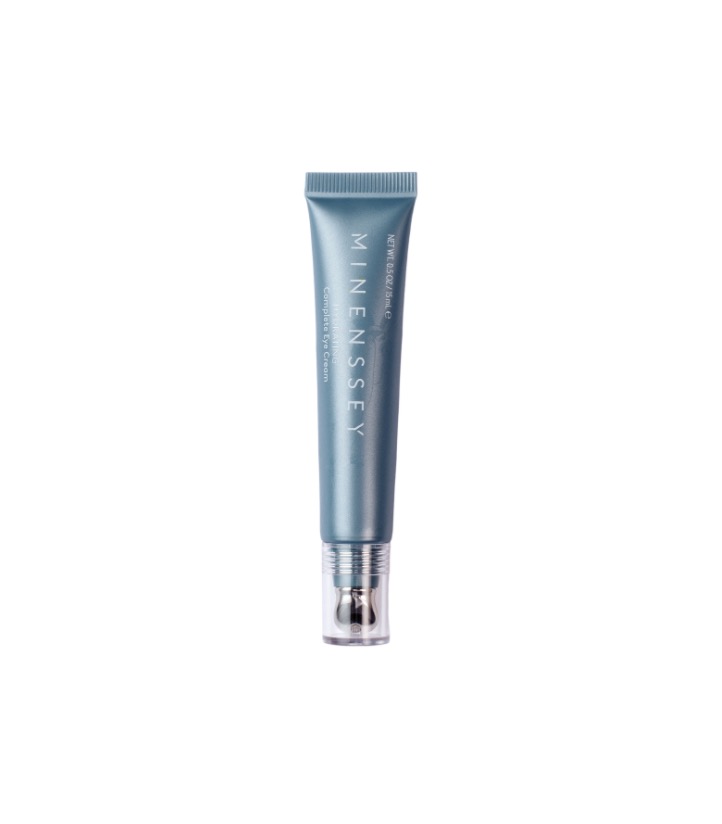
3. Eye Cream – Minenssey, Hydrating Complete Eye Cream
I’ve already talked about this goodie as one of my latest favorites last month, and here we go again, why? Just because it contains ABC Yoghurt Dermal Respiratory Factor that increases cellular respiration, metabolism, and collagen production. Using fermentation and various filtration techniques, the active ingredient is extracted from live Lactobacillus cells to deliver anti-aging benefits and anti-irritant properties. I can’t live a day without eye cream and if you have bags under your eyes no matter how many hours you sleep, you’ll have to add this into your new probiotic skincare routine.
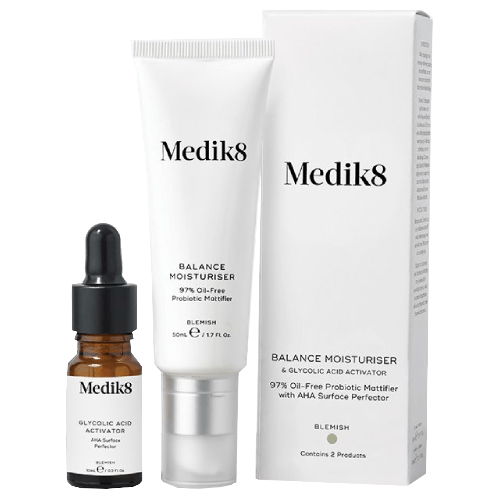
4. Moisturizer – Medik8, Balance Moisturiser & Glycolic Acid Activator
Say hi to the next holy grail for blemish-prone skin, not your usual moisturizer, it works in conjunction with the AHA activator to give the skin the ideal environment to fight blemishes. How? By balancing the microbiome, using AHA’s to exfoliate the skin, and reducing inflammation of existing blemishes. The pre and probiotics in the moisturizer, help to rebalance the microbiome and balance good bacteria. But that’s not all, let’s get extra with cinnamon that helps decrease oil production, reducing the likelihood of blemishes forming. After cleansing in the evening, apply 4-6 drops of the activator to the face, neck, and décolletage. Once dry, follow with the Balance Moisturiser to upgrade your probiotic skincare routine game.
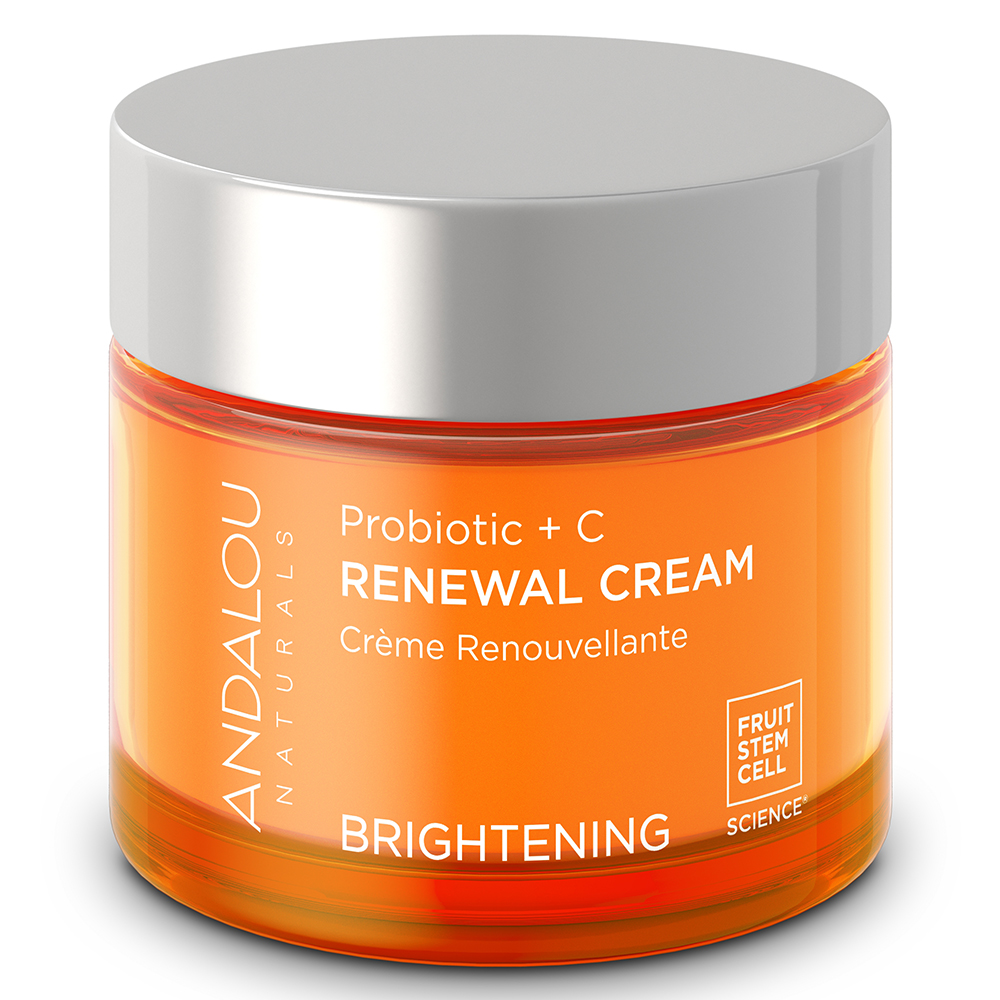
5. Andalou Naturals, Brightening Probiotic + C Renewal Cream
At Andalou, they take skincare pretty seriously but they also make it so easy that everything comes so natural… Leave behind the tricky guesswork out of your regime, and combine Fruit Stem Cell Science, with unique and innovative ingredients such as vitamin C, Apple, and the start of today, probiotics. With this combination, all we ask for is a lighter, tighter and brighter looking complexion and that’s exactly what your skin will get if the Brightening Probiotic + C Renewal Cream becomes a usual on your new probiotic skincare routine, shelf residents, say hi to your new friend, here to stay.
6. Paula’s Choice, Probiotic Nutrient Moisturizer
The new Paula’s Choice moisturizer is what probiotic dreams are made of, a unique blend of pre, pro, and postbiotics that maintain the good bacteria to support the skin’s microbiome for an always vibrant, healthy complexion. The combination of these three factors in the moisturizer helps maintain the beneficial substances skin needs to be balanced. With a smooth gel-cream texture, it doesn’t just benefit the skin’s microbiome but also fortifies against the early signs of aging, and can even use on the most sensitive and blemish-prone skin. In conclusion, this moisturizer packed as a probiotic skincare gem is a yes in every sense.
You also might like:
Kristen Bell is Launching her own Skincare Line Based on CBD
Sensitive Skin? Add these 3 Gold Natural Ingredients to your Skincare Routine
The Beginners Dictionary: 10 Skincare Ingredients You Need To Get Familiar With NOW
General FAQS
Can probiotics help your skin?
Studies suggest that applying probiotic skincare products may reduce acne outbreaks and manage dry skin and eczema. Several small but promising studies also suggest that probiotics can help battle skin aging and even skin cancer
What does prebiotics do for your skin?
A combination of prebiotics and probiotics in skincare can be outstanding for improving skin’s surface protection, ensuring skin has what it needs to keep its barrier intact, smooth and healthy
Is acne related to gut health?
Research has found that acne isn’t so much a condition of the skin as it is a condition of the gut. Lipopolysaccharide (LPS) endotoxins are part of harmful Gram-negative bacteria that have been shown to wreak havoc on the gut and skin.

